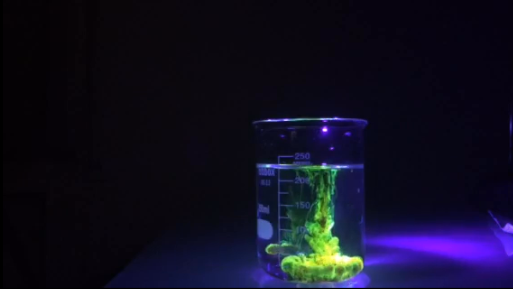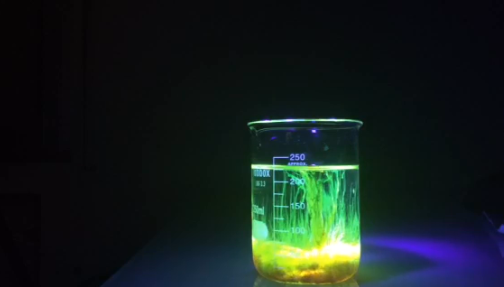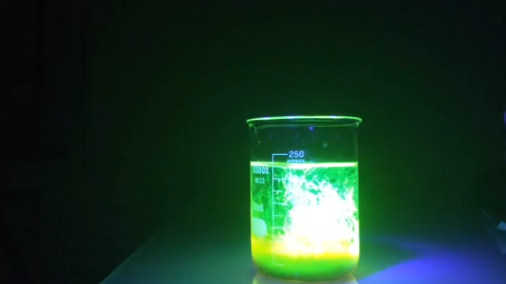Fluorescent Fluid
In this experiment you can make fluorescent liquid, through the phenomenon known as fluorescence. Fluorescence is a physical phenomenon by which certain substances absorb energy (from ultraviolet light) emitting it again in the form of light.

Experiment Materials:
The materials that are going to be used for experiment are:
1) Glass or glass container.
2) Water (if it is distilled better, but it will work the same even if it is not distilled).
3) A drop of ammonia.
4) Fluorescein Sodium - Buy.
5) Ultraviolet light flashlight.
How to make fluorescent liquid step by step
⇒ Step 1.
Enter a distilled water into a glass and add a drop of ammonia. This step is to raise the pH of the water. The maximum fluorescence of sodium fluorescein is 8. With a droplet of ammonia we raise the pH of tap water a little bit, placing it closer to 8. This step is not essential, however, and you can perform this experiment simply with tap water .
⇒ Step 2.
Add a few grains of sodium fluorescein. Sodium fluorescein are powders that generate a very high fluorescence. With very few grains you will see how the liquid dyes fluorescent color.
⇒ Step 3.
Illuminate the solution with ultraviolet light and you will see how the liquid illuminates in the dark with the phenomenon of fluorescence.
We repeat the process of introducing fluorescein into the water, this time in the dark, focusing it with ultraviolet light to better see the phenomenon.



Technical explanation experiment:
This experiment is based on fluorescence. In this article you can read what fluorescence is. For this experiment, the product that gives us the fluorescence is sodium fluorescein. Sodium fluorescein is a yellow water-soluble organic coloring substance that produces an intense green fluorescent color in basic solutions (pH greater than 7). When exposed to ultraviolet light, the fluorescence absorbs certain wavelengths and emits fluorescent light. Maximum absorption is observed over 500 nm wavelength and maximum emission in a pH medium around 8 and emission wavelengths close to 550 nm.
To get a basic solution (pH> 7) we will drop a few drops of ammonia into the water